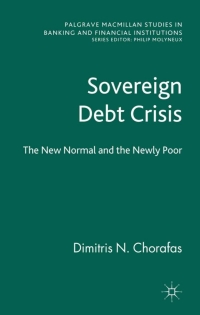Recognizing Different Types of Orders As an investor, based on your goals and investment objectives you create an investment plan. You choose your stockbroker that suits your needs, but when it is time to actually buy or sell securities in the securities market, it is important to understand how your transactions will be executed. Based on your expectations regarding a specific transaction you have the option to select from three different order types: market order, limit order, or a stop-loss order Teresa is an experienced investor who enjoys researching and investing in individual stocks that appear promising. On August 12 she is reviewing the trading Information for a new home security system company Secure You, presented in the following table. Trade Time: Open: Day's Range: Stock Information for Secure You 2:32 PM EDT 77.53 Last Trade: Prev Close 84.07 76.00 +8.07 (0.11) 75.39-86.39 Change: She is extremely confident in the future performance of Secure You and wants to buy 100 shares of stock regardless of the price, therefore she places order at 2:32 PM EDT. She knows that the execution price for this type of order the last trade price at the time the places the order. Her broker is able to execute the trade within minutes, obtaining her 100 shares at $84.12 each. Suppose the price of the stock rises for the rest of the day, eventually closing at a price of $92.97 In this case, the total value of the shares she purchased between the time of her purchase and the end of the day. If she had instead placed a order at 2:32 PM to buy the same number of shares only if the price fell to $81.07, she would have by the end of the day instead Teresa is an experienced investor who enjoys researching and investing in individual stocks that appear promising. On August 12 she is reviewing the trading information for a new home security system company Secure You, presented in the following table. Stock Information for Secure You 2:32 PM EDT Trade Time: Last Trade: 84.07 Open: 77.53 Day's Range: 75.39-86.39 Prev Close: Change: 76.00 +8.07 (0.11) She is extremely confident in the future performance of Secure You and wants to buy 100 shares of stock regardless of the price, therefore she places a order at 2:32 PM EDT. She knows that the execution price for this type of order the last-trade price at the time she places the order. Her broker is able to execute the trade within minutes, obtaining her 100 shares at $84.12 each. Suppose the price of the stock rises for the rest of the day, eventually closing at a price of $92.97. In this case, the total value of the shares she purchased between the time of her purchase and the end of the day. If she had instead placed a order at 2:32 PM to buy the same number of shares only if the price fell to $81.07, she would have by the end of the day Instead. Sam is another Investor who currently owns shares of Secure you stock. He would like to place a particular kind of limit order, in which the order is canceled if it cannot be executed immediately at the specified price or better. This type of order is known as








